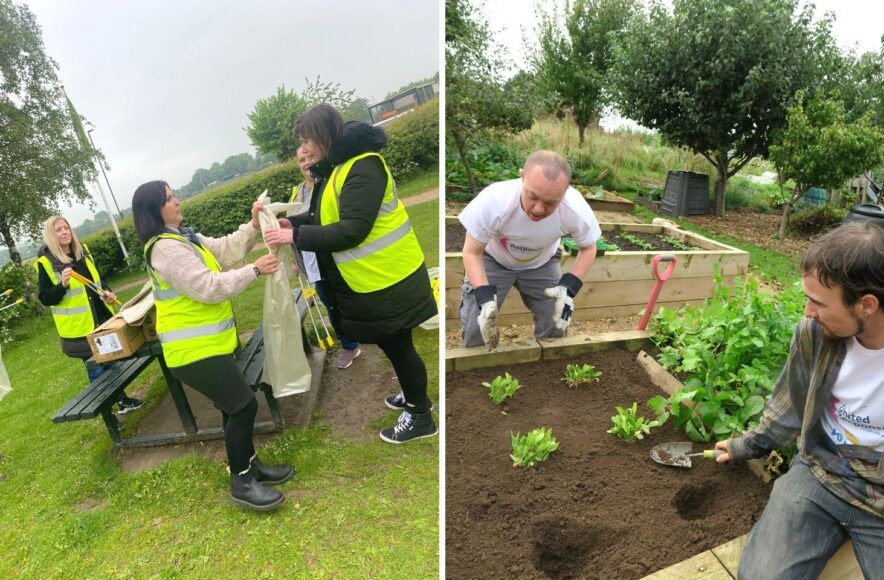Climate crisis: our projects put people we support at the centre of the fight

At COP16 in 2011, it was agreed by party states that disabled people have their human rights disproportionately impacted by climate change and that inclusion must be an essential factor in climate justice. Eight years later, the United Nations Human Rights Council adopted a resolution calling for governments to ensure they are disability-inclusive with their plans to address climate-change.
But how much of a say are disabled people having in the ongoing fight against changing global climates?
At United Response we have been quietly building a green task force across England and Wales, made up of staff and people we support who are passionate about protecting our environment.
From developing green projects to raising awareness and working with local communities our work is addressing some of the big issues facing society today. And most importantly, putting the people we support at the centre of creating change.
Going greener
Earlier this year at our farm in Cornwall, the people we support, colleagues and the local community came together to plant 5,000 trees. Those trees will offset an impressive 833 tonnes of Co2. Over in Wales we have been working closely with the council to turn a derelict piece of land into a thriving biodiverse green space where the local community can develop one of our Potters Den allotments.
With food production estimated to cause more than a third of our global emissions, growing our own is a worthy tool in our fight against climate change. Recently, we have hosted an open day for our Bristol Potters Den allotment to show the local community, Kerry McCarthy MP (Shadow Minister for Climate Change), local councillors, businesses and BBC Radio Bristol how people we support are fighting for climate justice from farm to plate.
But the work in our allotments and farms is also about providing opportunities for people who draw on social care to be the providers of support within their local communities. The produce grown in our green projects are donated to local community projects and food banks to help address the growing problem of food poverty. With a cost of living crisis estimated to plunge 1.3million people living in the UK into poverty, this work is vitally important.
What more needs to be done?
I’m concerned that information about climate change isn’t being made widely accessible for the 1.5million people with a learning disability in the UK.
For a number of years we’ve been campaigning for information to be made more accessible and have worked with people we support to report on climate change in our Easy News publication. But I’d like to see a firm commitment from the government to make information accessible for people with a learning disability by producing Easy Read information about climate change and what the government is doing to address the cost of living crisis and food poverty for their website.
And as more extreme weather affects our lives it will be essential that emergency responses do not leave disabled people behind. Governments should take note of how the war in Ukraine has impacted disabled people, and ensure that environmental disaster planning puts disabled people’s needs as a priority.
People we support are incredibly passionate about the environment and fighting climate change so I’d also like to see climate justice movements have better representation from disabled people and more inclusive ways that people can get involved and create positive change.
Watch the animation people we support and local disabled people in Devon made to raise awareness of climate change during the G7 Summit in Cornwall:
Transcript: Zack’s Story – Chapter 3 – Climate change
- Ali Gunn is Public Affairs and Policy Lead for United Response